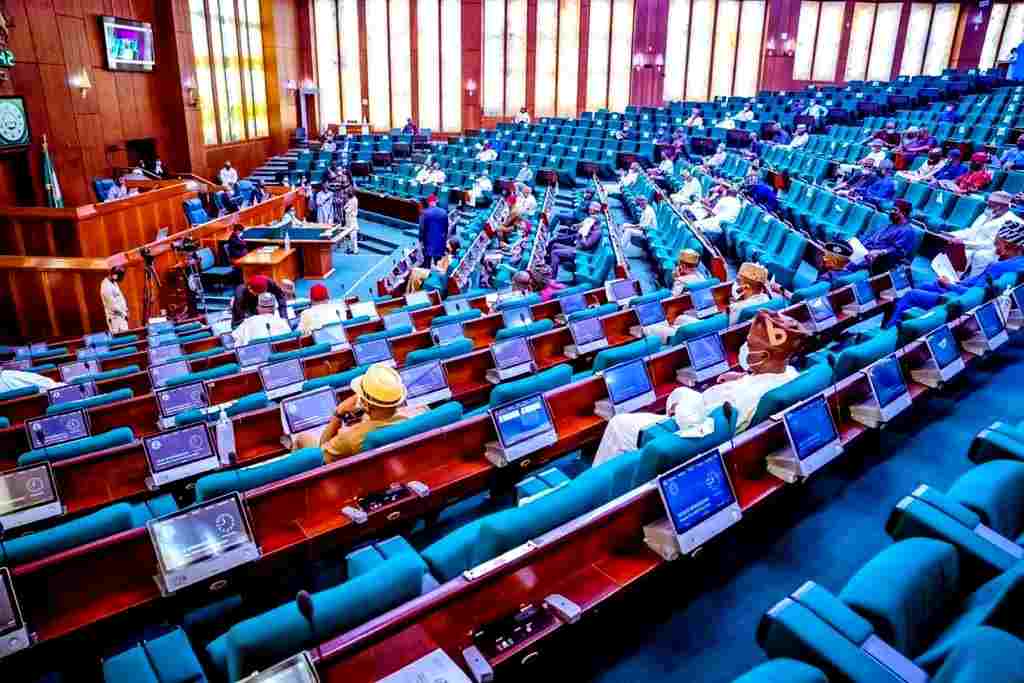Deputy minority leader of the House of Representatives, Hon. Toby Okechukwu has said that needed about N7.4 trillion to complete ongoing 854 highways, bridge projects nationwide.
He said that the annual appropriation of N200 billion for the Ministry of Works and House was grossly insufficient to meet the demands for road infrastructure.
READ ALSO:Reps frown at NCDC for paying part of FG’s N9bn special intervention fund into private accounts
It will be recalled that the Minister, Babatunde Fashola SAN had during the defence of the ministry’s 2022 budget at the House called for suspension of the award of new road projects pending the completion of the ongoing ones.
Recalling the submission, Okechukwu who spoke against the backdrop of the two bills; National Roads Fund Bill and Federal Roads Bill, sponsored by him, recently passed by the National Assembly and transmitted to President Muhammadu Buhari for assent said that the two bills were a panacea to the funding needed to end the menace of bad roads in the country.
He said: “Our problem is revenue, not the number of roads. People have to get to their destinations or homes. So, we have to build roads.
“If you say, stop awarding road contracts as proposed by the Minister, I agree, but you will still need over N7.4 trillion to finish already existing contracts.
“So, even if you stop awarding contracts, you still cannot finish the roads or paying your debts relaying on N200 billion per annum budgetary allocation. You can’t finish it in 20 years.
“As a Ministry that has over N7 trillion contractual commitments, but gets N200 billion annually with an outstanding liability of about N420 billion, then you need some extra help.
“So, the National Roads Fund will deal with the sustainable funding of the roads because the annual budgetary interventions are inadequate. It will serve as a repository of funds you can charge from road users, including tolling, weighing bridges. It becomes a fund that will be used for maintenance of roads. So, the annual budgetary allocation becomes an intervention, not the main source of road maintenance.
“The Federal Roads Bill, on its part, deals with the framework for sustainable development of roads”.
The deputy minority leader who represents Oji River/Anri/Ogwu federal constituency of Enugu State said that bad roads were not peculiar to a particular region of the country or where the President hailed from.
“Contrary to what Nigerians easily think, the state of our roads does not depend on who is President or who is occupying any positions.
“If for instance, you go from Suleja to Minna, you will find out the deplorable state of that road. But we have had two Presidents or Heads of State there. If you travel from Kano to Katsina, you find out that the road needs some intervention and help despite producing two presidents. The East-West roads could not be done in spite of the fact that it leads to Otuoke; and it is still a major concern. If you move from Lagos to Abeokuta, you find out that the roads are deplorable.
“Then look at the Enugu-Port Harcourt and Enugu-Onitsha road. They are in very poor states. From Abuja to Lokokoja and down to Ajaokuta is the same. The state they were 10 years ago and the same states they are in today.
“You have witnessed protests on the state of federal roads in Niger State and we have also witnessed recent protests over the state of East-West road.
“So, past presidents could not help themselves. The present president can’t help himself. And the incoming president will still not be able to help himself unless we find avenues to address the challenges. And the avenue is the assent to these Bills.
“The funds are simply not enough and the roads are in bad state; and I can tell you, if we continue in this same way or model, for the next ten years, nothing will change”, he said.
The lawmaker said only three ongoing projects, namely, Lagos-Ibadan expressway, Second Niger Bridge, and Abuja-Kano expressway were guaranteed to succeed because the National Assembly was able to push them to the Nigeria Sovereign Investment Authority and they no longer relied on annual budgets.
He regretted that that while other countries had come to Nigeria understudy the nation’s road funding and authority process, which started in Nigeria since 1971, and enacted them into laws, Nigeria was yet to make laws in that directions, and therefore urged President Mohammadu Buhari to assent the Bill.
On Public Private Partnership, the lawmaker recalled that most roads in other jurisdictions were funded by the private sector, but however stressed that Nigeria needed legal framework for it sustainability and success.
“Just about four to six months back, there have been talks about intervention by Dangote, there have been talk about intervention by MTN, and Transcorps and some other corporate entities. But, under which legal framework?
“Also take for instance the muted idea of road interventions by the Nigeria National Petroleum Corporation, NNPC. What if they change the Managing Director? What if the Minister of Works goes and the person who comes in says, look, I don’t know what you are talking about? NNPC, which is grappling with its scope of work, which is to do refineries, harvest crude oil, and transport them to destinations, is going into roads.
“But if it is by a legal framework, there will be contracts where the National Road Fund comes into play, the Road Authority comes into play, and they are legal persons that can undertake contracts and deal with private sector companies”, he explained.
Okechukwu further explained that the new road governance model proposed by the Federal Roads Bill would create sustainable jobs through decades-long road maintenance agreements, unlike the current two or three-year road contracts.




